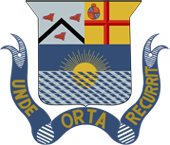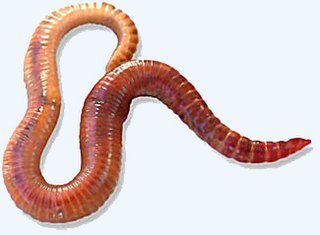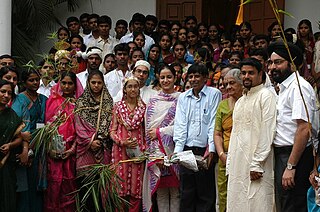
Chennai, formerly known as Madras, is the capital city of Tamil Nadu, the southernmost Indian state. It is the state's primate city both in area and population and is located on the Coromandel Coast of the Bay of Bengal. According to the 2011 Indian census, Chennai is the sixth-most populous city in India and forms the fourth-most populous urban agglomeration. Incorporated in 1866, the Greater Chennai Corporation is the oldest municipal corporation of India and the second oldest in the world after London.

Vermicompost (vermi-compost) is the product of the decomposition process using various species of worms, usually red wigglers, white worms, and other earthworms, to create a mixture of decomposing vegetable or food waste, bedding materials, and vermicast. This process is called vermicomposting, with the rearing of worms for this purpose is called vermiculture.

Presidency College is an art, commerce, and science college in the city of Chennai in Tamil Nadu, India. On 16 October 1840, this school was established as the Madras Preparatory School before being repurposed as a high school, and then a graduate college. The Presidency College is one of the oldest government arts colleges in India. It is one of two Presidency Colleges established by the British in India, the other being the Presidency College, Kolkata.

Ramakrishna Mission Vivekananda College, named after Swami Vivekananda, was formally inaugurated on 21 June 1946 by professor, philosopher, and politician, Sarvepalli Radhakrishnan. It is in Mylapore, the centre of Chennai, India, on 20 acres. This college is part of various educational institutions owned by Ramakrishna Mission.

Tharamani is an area in the south Indian city of Chennai. It is known for the presence of the city's first IT parks and numerous government educational and research institutions. It is located adjacent to the posh residential area of Adyar and Besant Nagar in South Chennai. It is an Estate with Express IT Companies, making it a massive located neighbourhood in the IT Expressway.

Madras Medical College (MMC) is a public medical college located in Chennai, Tamil Nadu, India. Established in 1835, it is the one of the oldest medical colleges in India, as well as in Asia.

Dr. Ambedkar Government Law College, commonly known by its former name Madras Law College, is a law school, located in Chennai (Madras), Tamil Nadu, India. It is also referred to as Government Law College or GLC, Chennai. It was established in 1891. It was renamed in 1990, as Dr. Ambedkar Government Law College, by the Government of Tamil Nadu in commemoration of the birth centenary of B. R. Ambedkar. In 1997, the Government of Tamil Nadu passed an Act which brought the college under the wings of the newly established Tamil Nadu Dr. Ambedkar Law University, splitting the college from the University of Madras.
Morappakam Josyam Gopalanpronunciation (help·info) was an Indian sportsman who represented India in cricket and hockey.

Tamil Nadu Agricultural University (TNAU) is the state agricultural university of Tamil Nadu located in Coimbatore, Tamil Nadu, India.

Eisenia fetida, known under various common names such as manure worm, redworm, brandling worm, panfish worm, trout worm, tiger worm, red wiggler worm, etc., is a species of earthworm adapted to decaying organic material. These worms thrive in rotting vegetation, compost, and manure. They are epigean, rarely found in soil. In this trait, they resemble Lumbricus rubellus.

Chennai, the capital city of the state of Tamil Nadu, India, is the largest industrial and commercial center of South India. Recent estimates of the economy of the Chennai is around US$78.6-86 billion PPP GDP. The GCC area doesn't include the nearby industrial zones of Oragadam, Siruseri, Sriperumbudur, etc. After the expansion of Chennai's metropolitan Area by Government of Tamil Nadu in 2022, the economy of Chennai Metropolitan is estimated to be around $200 billion, 3rd largest in the country.
Chennai is home to many educational and research institutions. IIT Madras, located in South Chennai is considered as the premier centre of engineering education in India. Anna University and the University of Madras are the oldest state owned universities which are ranked among the best universities in India. The College of Engineering, Guindy and Madras Institute of Technology, which are the constituent college of Anna University along with Alagappa College of Technology are the pioneer institutes of engineering education in India. Some of the oldest medical colleges India, the Madras Medical College (1835) and Stanley Medical College (1938) are located in the city. Notable, liberal arts colleges in the city include Loyola College, Madras Christian College, Presidency College, Stella Maris College, Women's Christian College and Ethiraj College for Women.

Exnora International is a non-governmental environmental service organization started in 1989 in Chennai, Tamil Nadu, India, by M. B. Nirmal, a social activist. It focuses on preserving nature and preventing environmental degradation.

An earthworm is a terrestrial invertebrate that belongs to the phylum Annelida. They exhibit a tube-within-a-tube body plan; they are externally segmented with corresponding internal segmentation; and they usually have setae on all segments. They occur worldwide where soil, water, and temperature allow.

M. Muhammad Ismail was an Indian politician and social worker from southern Indian state Tamil Nadu. he was a founder of the Indian Union Muslim League after the partition of British India. He was popularly known in Tamil Nadu and Kerala as the "Quaid-e-Millat".

The Madras Presidency was a province of British India comprising most of the present day Tamil Nadu and Andhra Pradesh along with a few districts and taluks of Karnataka, Kerala and Odisha. A few princely states, notably Ramnad and Pudukkottai also merged into the Presidency at some or the other time. The Presidency lasted till 1950, when it became the Madras State after India became a republic. In 1953, Telugu-speaking regions of the state split to form Andhra State. Subsequently, in 1956, Kannada- and Malayalam-speaking areas were merged with Mysore and Travancore-Cochin respectively.

Dendrodrilus rubidus is a species of earthworm in the family Lumbricidae. It is native to Europe, and it is a widespread introduced species, occurring on every continent except Antarctica, as well as many islands. It is often invasive. It is sometimes used as fishing bait, and is marketed under many nonspecific names, including red wiggler, jumping red wiggler, red trout worm, jumbo red worm, and pink worm. Other common names include bank worm, tree worm, and gilt tail.
Dr. E.K.T Sivakumar is an Indian chemist born in a small hamlet of Tamil Nadu called Podaturpet near Tiruttani. He is a visiting professor at Anna University, Department of Ceramic Technology. He is also the editor of a Tamil journal Valarum Ariviyal.

Nanditha Krishna is an Indian author, environmentalist and educationist. She was recognised by the Government of India who gave her one of the first Nari Shakti Awards in 2015, the highest award for women in India. She is the president of the C.P. Ramaswami Aiyar Foundation in Chennai and an author of several books.

Octolasion lacteum is a species of earthworm of the genus Octolasion. In New Zealand it has been found in West Coast soils and in Canterbury. They are found in mostly moist areas deep under the soil as they feed in the nutrients within the soil. Unlike other worm species, these are known to survive in acidic soil as well as soil that is not as organic compared to other places. They provide some important roles in the ecosystem as well as threats to other species as well. After a drought, they help the soil get more organic by adding more carbon dioxide in the soil and the waste from the O. lacteum also provides nutrients for the soil. In another case, they can also be invasive in a way that they suck up carbon in the soil which means plants have less causing a disruption to the food web. Lastly, they reproduce by cross parthogenic reproduction.

















